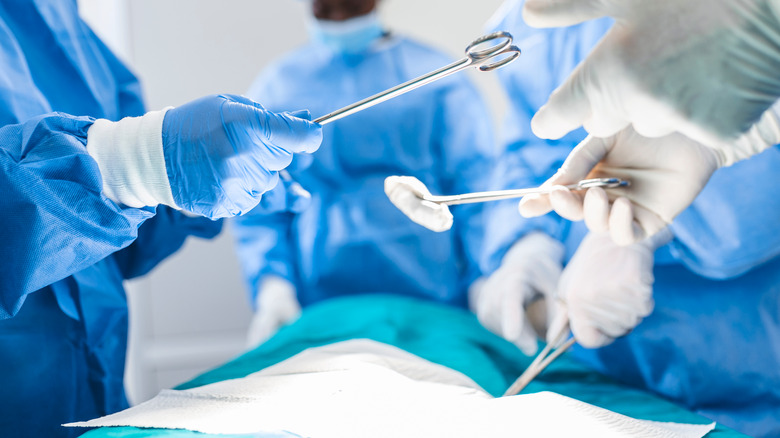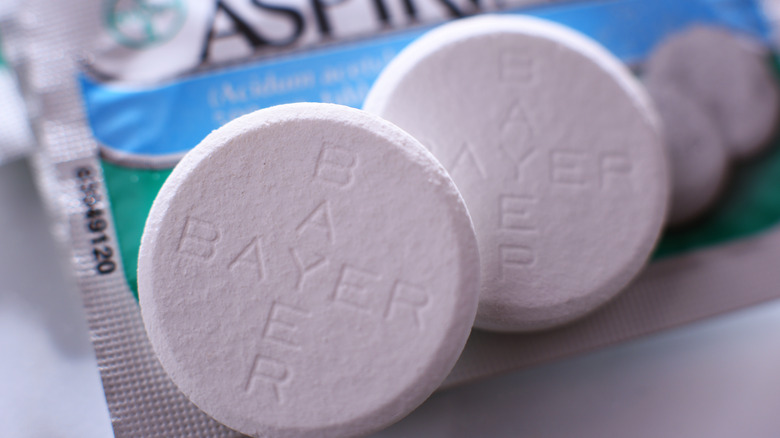How You Can Prevent Blood Clots From Forming After Surgery
According to Hematology, blood clotting is the body's natural process of directing platelets and proteins to the site of an injury or wound to stop bleeding. This process is medically known as coagulation. Both platelets and proteins come together to form clots in the wounded area. Most of these clots dissolve once the bleeding stops. However, it's possible for blood clots to form inside of the blood vessels and then not dissolve on their own. Thus, they may be harmful to your body, especially since they could block the proper blood circulation process. These clots require immediate attention.
One factor that may make you susceptible to problematic clotting is recovering from surgery, per Healthline. This condition is also known as deep vein thrombosis (DVT), per WebMD. Healthline warns that these clots can get lodged in the veins and hinder the blood supply to the heart. As a result, you may experience swelling, pain, or even more severe and sometimes life-threatening complications.
How to prevent blood clotting after surgery
Healthline recommends taking the medications prescribed to you by your doctor to avoid blood clots. A common drug for this purpose is aspirin which acts as a drug thinner. Doctors might also prescribe other drugs containing anti-coagulation compounds to stop problematic blood clot formation.
You may also have to make some significant lifestyle changes to avoid DVT after surgery. WebMD suggests stopping smoking as it raises the risks of post-surgery coagulation. That's because nicotine not only increases the platelets in the body but also makes them sticky, which can put you at risk (via Virginia Vein Care).
WebMD also recommends managing your weight, as obesity and being overweight are risk factors for DVT. Be mindful of what you eat and avoid consuming junk foods. Instead, opt for a healthier diet plan. Since being sedentary can also increase your risk of blood clots, be sure to follow your care team's instructions for resuming physical activity. Your doctor may also recommend compression stockings or devices.


